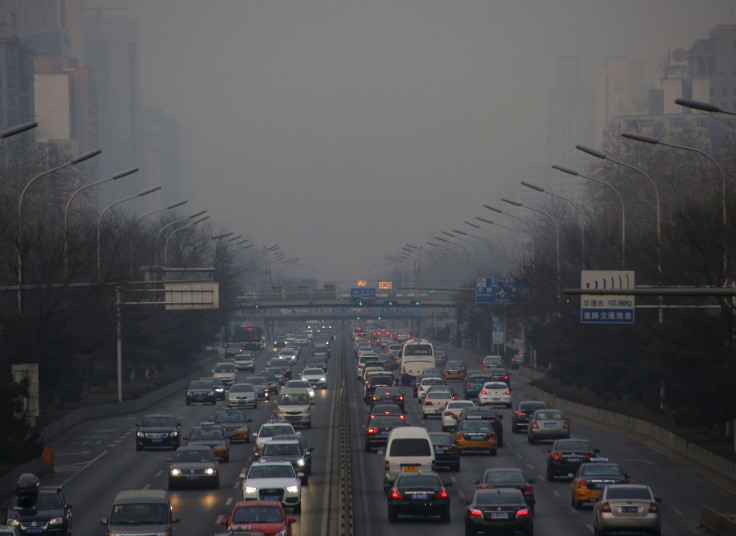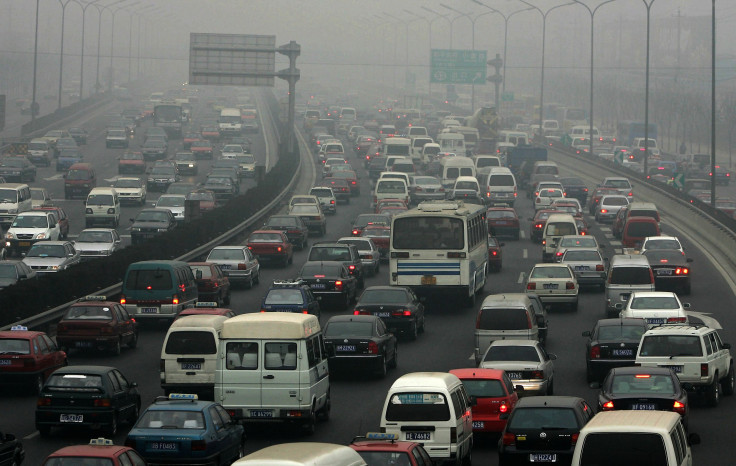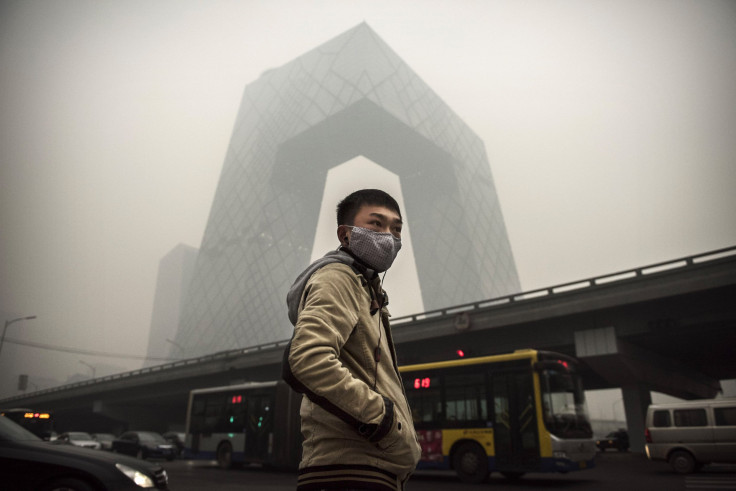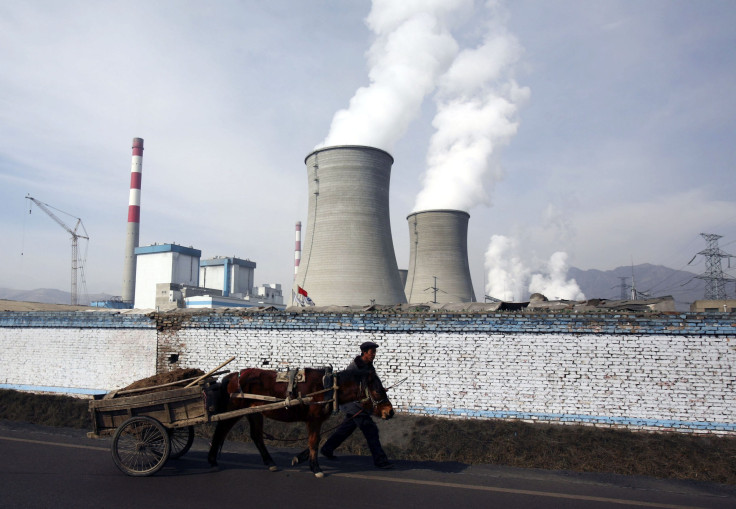China’s Attempt To Stimulate Slowing Economy Won’t Prevent Environment Cleanup, Says Minister

SHANGHAI — Pressure to boost China’s slowing economic growth will not be allowed to undermine attempts to tackle the country’s serious pollution problem, Chen Jining, the nation's minister of environmental protection, said at the annual session of China’s legislature.
China’s leaders have pledged to roll out fiscal stimulus measures to help boost growth, which slowed to 6.9 percent — its lowest level in a quarter century — last year, amid slumping demand for exports. But Chen said this would not undermine attempts to move away from low-end and often polluting manufacturing industry. China was now pursuing not only "economic quality, but also environmental quality," he told a news conference in Beijing.
China has pledged billions of dollars to clean up its environment, which has been affected by severe air and water pollution. At the Paris climate change conference last year, the country — the world’s largest emitter of greenhouse gases — pledged that carbon emissions would peak by around 2030. And the country’s leadership recently pledged to move away from car-centric urban development by constructing more subways and encouraging use of public transport.

But with stimulus measures expected to include significant construction of new infrastructure, and the central leadership apparently reluctant to close down loss-making state enterprises too rapidly, for fear of the impact of major job losses, concerns remain. A recent report by the European Chamber of Commerce in China (EUCCC) suggested that the stimulus package introduced following the 2008-2009 financial crisis led to an undermining of environmental standards, with good quality companies often squeezed out of the market by the cheap credit available to lower-tech and often state-owned rivals.
Chen, however, stressed that it was important to ensure that “polluters bow out of the market” in order to “set aside some development space for good companies to focus on innovation and improving product quality, and to avoid the phenomenon of 'bad money driving out good' in our development," according to the Associated Press.
Most observers say the Chinese leadership has given a higher profile to environmental issues over the past two years. It has passed a new environmental law, and has brought in Chen, the former head of the prestigious Tsinghua University and an environmental engineer himself, to give more influence to the environment ministry, which has also seen its status upgraded from a mere government agency. Since last year it has begun levying tougher fines on polluters, including some government-owned companies, while Chen also highlighted proposals to tax major polluting industries during his news conference Friday.
However, environmentalists say it has remained hard for the government to implement its policies effectively, something Chen himself has acknowledged in the past. And Joerg Wuttke, president of the EUCCC, told International Business Times recently that his group has called for local environmental protection agencies to be placed directly under central control, and centrally funded, in order to help them tackle local protectionism of polluting industries.
"Cleaner technologies cost more money — and localities turn around and say I don't want to know about this, this is my big employer," he said. "So we are trying to encourage the government to centralize control of local environment agencies, to take this away from the localities and manage them out of Beijing so they get more bite."

And Chen pledged Friday that inspection teams would be sent to different regions this year to hold local governments to account.
"Only if we hold them accountable for environmental responsibilities will the enterprises be more law-abiding," he said.
Some experts say the current slowdown in exports, and official pledges to refocus China's economy more on service industry mean the country now has a good opportunity to move away from the polluting industry. And the government’s economic blueprint for the next five years for the first time includes a specific target for capping energy consumption, at 5 billion tons of coal equivalent by 2020 (compared to 4.3 billion in 2015).
Beijing has also said it has made progress in reducing sulfur emissions, while a recent report by the Grantham Research Institute and the London School of Economics said carbon emissions may have peaked in 2014 — though some Chinese officials have said the battle is not yet won.
And Chen argued Friday that China had done more sooner to tackle environmental problems than many other countries at an equivalent stage of development.

However, the sheer size of China's economy and pace of its development mean the problems remain immense. China's big cities, some of the most polluted on the planet, have continued to experience severe air pollution over the recent winter months — with Beijing issuing its first ever red pollution alert late last year.
And a recent report by environmental group Greenpeace said that despite central government attempts to rein in pollution, a change in administrative rules last year allowing local government to approve power plants without seeking permission from the centre led to the approval of 200 new coal-fired plants in 2015, far more than in previous years.
Such problems highlight what environmentalists say is an urgent need for a joined-up, coherent, government approach to the problem. In a nod to this issue, the municipal government of Beijing has pledged to work more closely with surrounding cities and neighboring Hebei province, and to issue joint pollution alerts. The region has also been setting higher targets for reducing the build-up of fine particles in the air, by 25 percent by 2020, compared to a goal of 18 percent in the rest of China. And officials have said that the hosting of the 2022 Winter Olympics in Beijing and Hebei will give added impetus to efforts to clean up the environment.
Yet, experts say pressure for growth, allied to China’s ongoing love affair with the car, will continue to challenge moves to a cleaner environment. Despite a slowdown in sales growth last year, China still remains the world’s fastest-growing car market, and moves to promote electric vehicles, seen as less polluting, are taking time to implement.
© Copyright IBTimes 2025. All rights reserved.






















